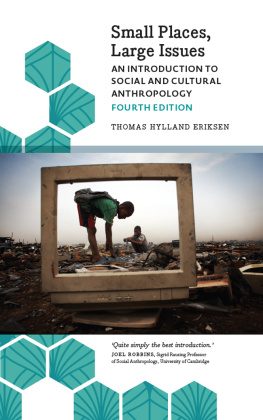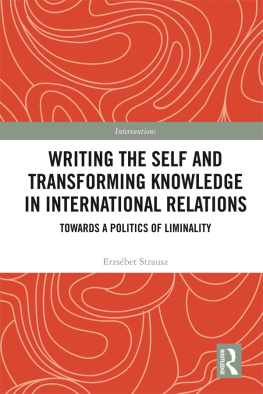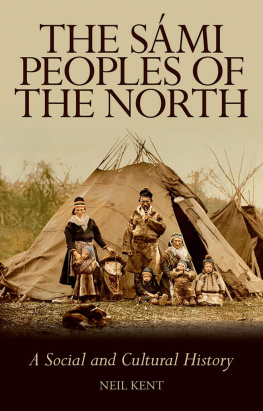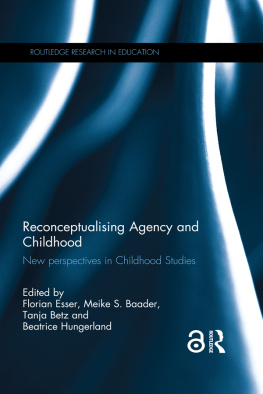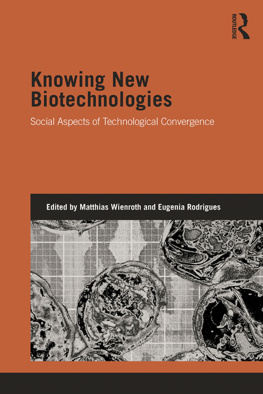
Knowing from the Indigenous North
Focusing on the Spmi region of Northern Europe as a point of departure, this book enriches and sharpens the concept of the North. It combines detailed empirical research on the Smi people and their life-worlds with theoretical contributions from leading scholars. The authors consider the European North not only as a geographical site or an object of academic research, but as a particular way of knowing and being, with its own needs, practices, concepts, and imaginings. The North, as an epistemic position, offers its own conceptions of politics, human agency, history, and social relations, which this book studies and describes. The volume challenges us to consider social scientific knowledge, its significance, and the practices of producing it in a new way.
Thomas Hylland Eriksen is Professor of Social Anthropology at the University of Oslo, Norway.
Sanna Valkonen is a Smi scholar and Associate Professor of Smi Research at the University of Lapland, Finland.
Jarno Valkonen is a Smi scholar and Professor of Sociology at the University of Lapland, Finland.
Knowing from the Indigenous North
Smi Approaches to History, Politics and Belonging
Edited by Thomas Hylland Eriksen, Sanna Valkonen and Jarno Valkonen
First published 2019
by Routledge
2 Park Square, Milton Park, Abingdon, Oxon OX14 4RN
and by Routledge
711 Third Avenue, New York, NY 10017
Routledge is an imprint of the Taylor & Francis Group, an informa business
2019 selection and editorial matter, Thomas Hylland Eriksen, Sanna Valkonen and Jarno Valkonen; individual chapters, the contributors
The right of Thomas Hylland Eriksen, Sanna Valkonen and Jarno Valkonen to be identified as the authors of the editorial material, and of the authors for their individual chapters, has been asserted in accordance with sections 77 and 78 of the Copyright, Designs and Patents Act 1988.
All rights reserved. No part of this book may be reprinted or reproduced or utilised in any form or by any electronic, mechanical, or other means, now known or hereafter invented, including photocopying and recording, or in any information storage or retrieval system, without permission in writing from the publishers.
Trademark notice: Product or corporate names may be trademarks or registered trademarks, and are used only for identification and explanation without intent to infringe.
British Library Cataloguing-in-Publication Data
A catalogue record for this book is available from the British Library
Library of Congress Cataloging-in-Publication Data
A catalog record has been requested for this book
ISBN: 978-0-415-79073-4 (hbk)
ISBN: 978-1-315-17983-4 (ebk)
Typeset in Times New Roman
by Out of House Publishing
Contents
Jarno Valkonen, Sanna Valkonen & Tim Ingold
Jarno Valkonen & Sanna Valkonen
Veli-Pekka Lehtola
Eeva-Kristiina Harlin
Thomas Hylland Eriksen
Saara Tervaniemi & Pivi Magga
Jarno Valkonen & Petri Ruuska
Tim Ingold
Tapio Nyknen
Sanna Valkonen
Michael Skey
Thomas Hylland Eriksen is a professor of social anthropology at the University of Oslo, Norway, as well as the 20152016 president of the European Association of Social Anthropologists. His current research is motivated by a triple concern: to understand the present world, to understand what it means to be human, and to help bring about social and environmental change.
Eeva-Kristiina Harlin is a PhD student from University of Oulu, Finland, researching repatriation of Smi tangible heritage. She is specialized in Smi collections in European museums. She is currently working with rehabilitation of cultural heritage in Spmi together with Smi artist Outi Pieski.
Tim Ingold is Professor Emeritus of social anthropology at the University of Aberdeen, Scotland. His interests are wide ranging and include northern circumpolar peoples, environmental perception, language, technology and skilled practice, art and architecture, creativity, evolutionary theory, human-animal relations and ecological approaches in anthropology.
Veli-Pekka Lehtola is a Smi scholar and professor of Smi culture at the University of Oulu, Finland. As a researcher, Lehtola specialises in the history of the Smi and Lapland, in modern Smi art, as well as in the development of the Smi representations.
Pivi Magga is a Smi researcher at the Smi Museum Siida, Inari, Finland. She specialises in the questions conserning Smi cultural environment.
Tapio Nyknen is a researcher at the Faculty of Social Sciences at the University of Lapland, Finland. His research interests include politics of indigeneity, politics of religion and migration.
Petri Ruuska is a sociologist and senior researcher from Tampere, Finland. He has studied everyday nationalism, Finnishness and identity concept.
Michael Skey is a lecturer in communication and media at Loughborough University, UK. His research interests are in the areas of national identity and globalisation, discourse theory, media events and everyday life. He has published work on mass rituals, ethnic majorities, theories of nationalism and cosmopolitan identities.
Saara Tervaniemi is a Smi scholar and PhD student at the University of Lapland, Finland. She is researching questions concerning the Smi as a nation from the perspective of critical Indigenous studies.
Jarno Valkonen is a Smi scholar and professor of sociology at the University of Lapland, Finland. His research interest are in the areas of environmental politics, human-nature relations, ethnicity and identity politics, waste, tourism and work.
Sanna Valkonen is a Smi scholar and associate professor of Smi studies at the University of Lapland, Finland. Her research interests include politics of indigeneity and cultural heritage, ethnic relations and identity politics, Smi society, and gender.
Jarno Valkonen, Sanna Valkonen & Tim Ingold
Searching the mysterious core of Kaldoaivi
Helsingin Sanomat, the newspaper with the largest circulation in Nordic countries, published an article in its NYT supplement on September 22nd, 2000, entitled Kaukana kaikesta (Far from Everything). The purpose of the article was to determine the remotest place in Finland and go there to see what it looks like. Journalist Sami Soininen writes that the first task was to define what remotest means and then study maps to see where a place matching such criteria could be found. By remote, he meant a place that was uninhabited, as far from roads or other thoroughfares as possible and accessible only on foot. Studying maps revealed to Soininen that such places in Finland can only be found in Laplands great national parks and wilderness areas, such as the Ksivarsi wilderness area, Lemmenjoki national park and the remotest parts of the Kaldoaivi wilderness area. After a closer examination, he concluded that the remotest place in Finland can only be found in the Kaldoaivi wilderness in Finlands northernmost municipality, Utsjoki, because it is the only one among the above-mentioned areas that is completely located within the territory of the state of Finland. The decision is made. The mysterious core of Kaldoaivi had to be the remotest place in Finland, Soininen writes, and specifies further that the mysterious core is located on the northeast shore of Njallajvri.


